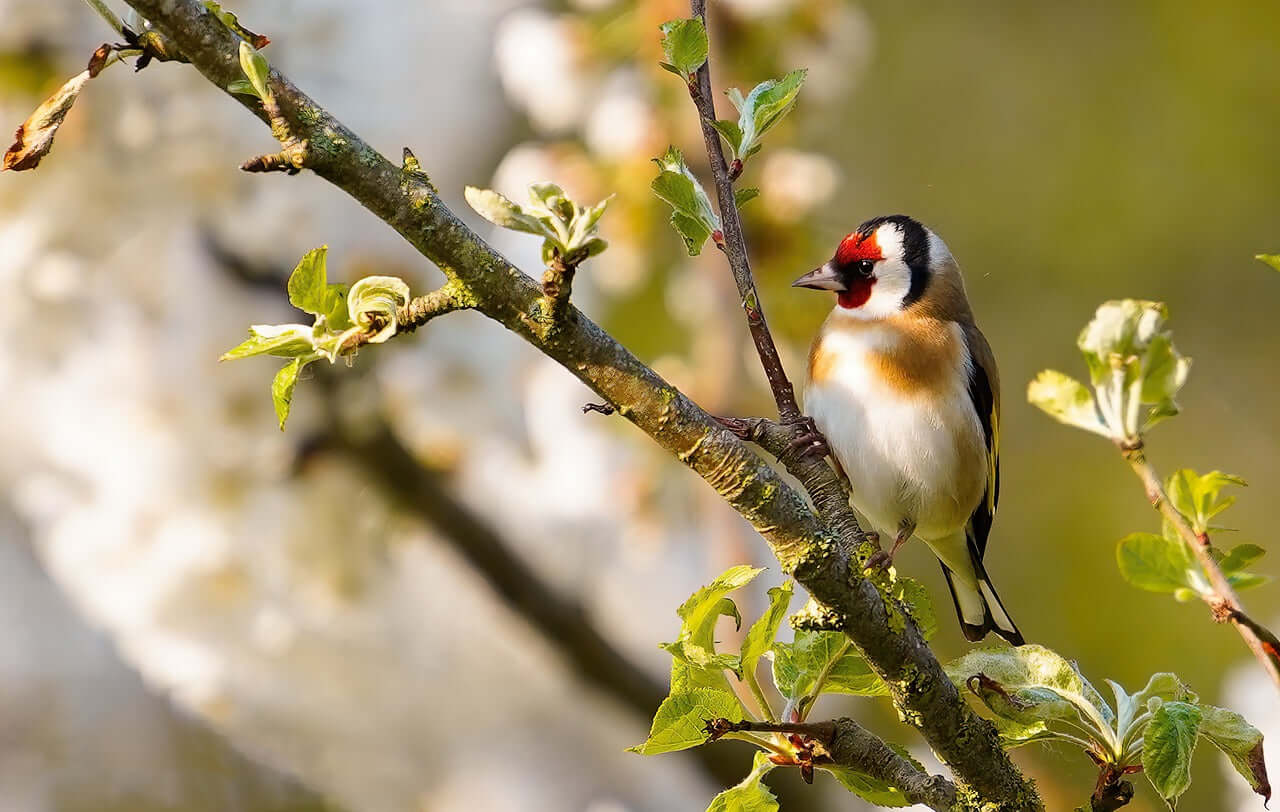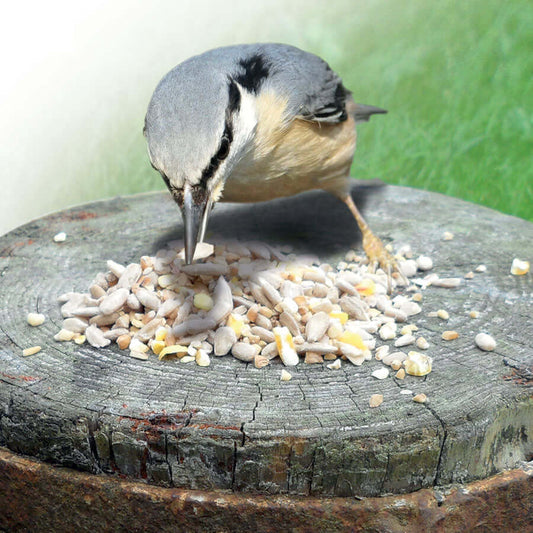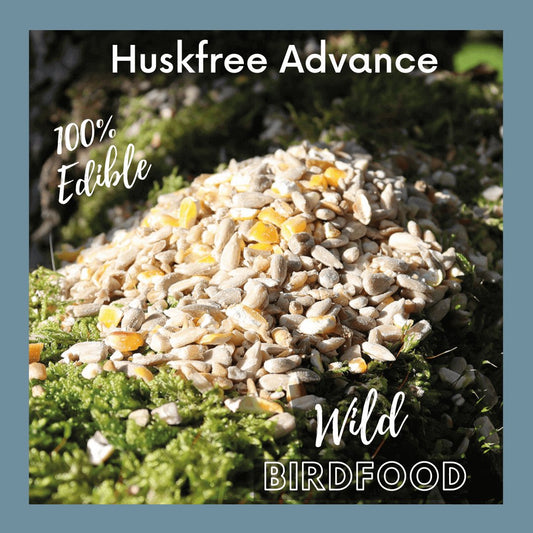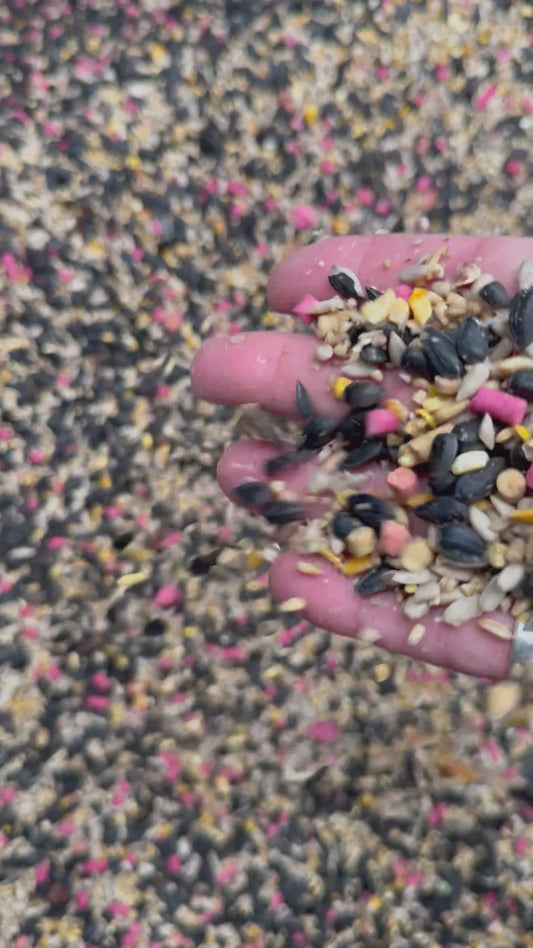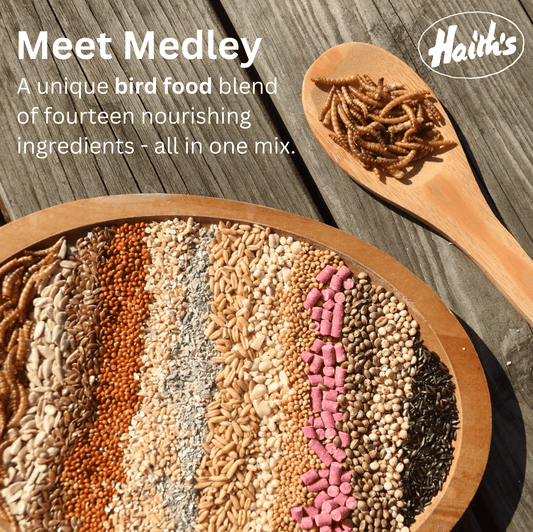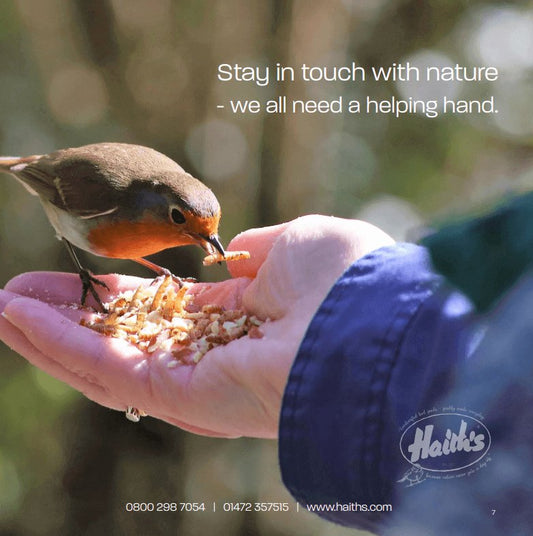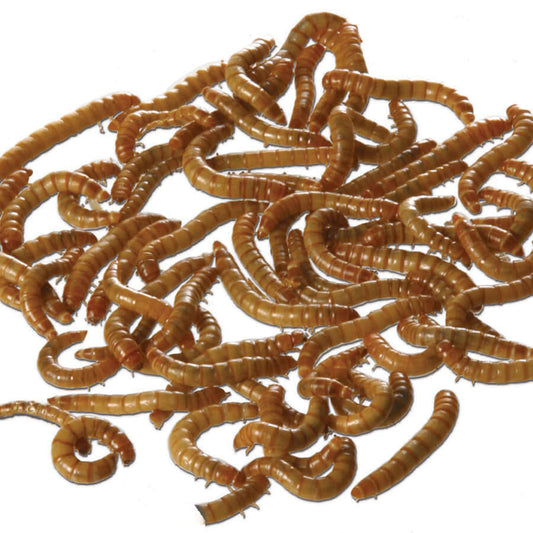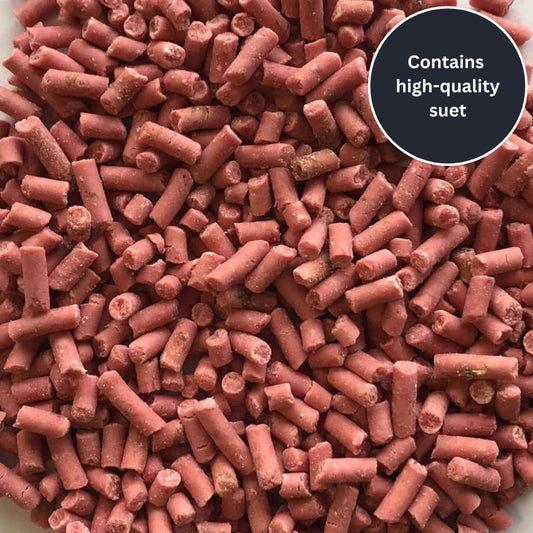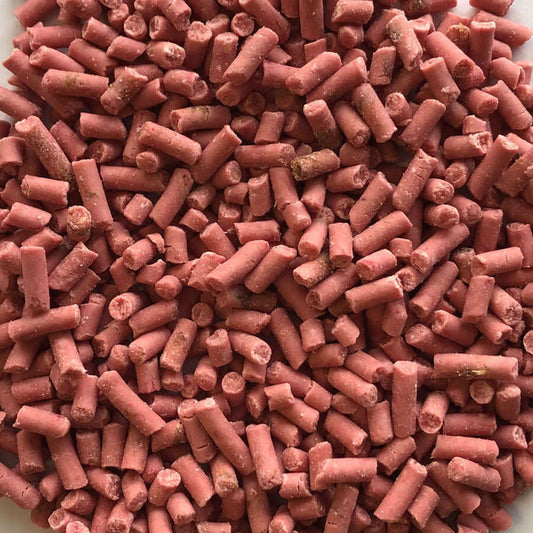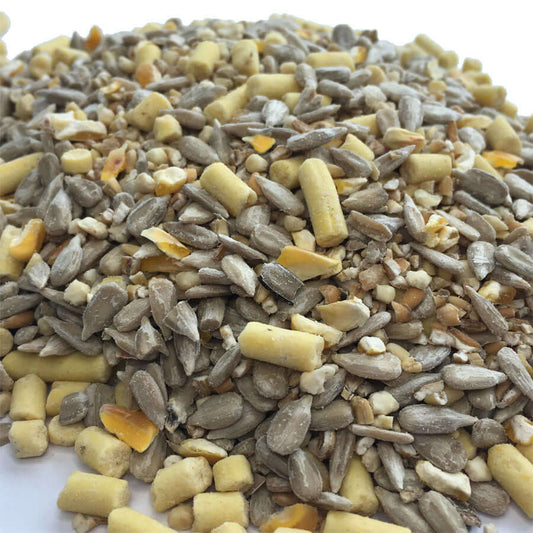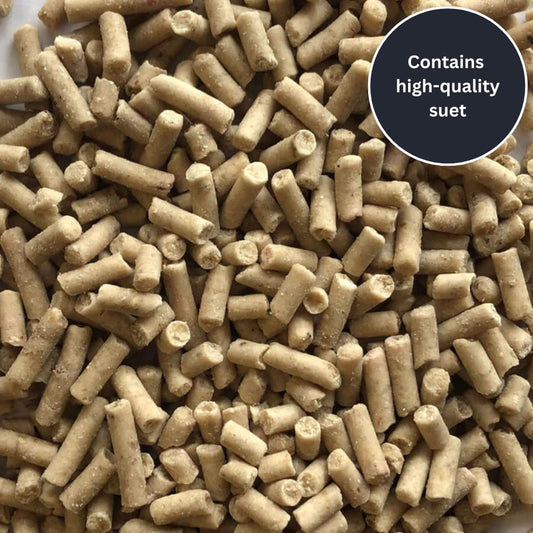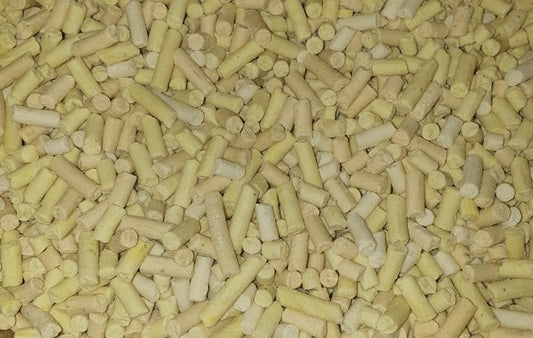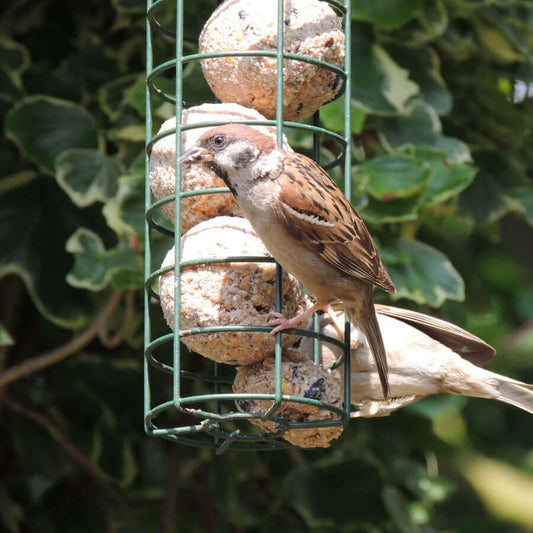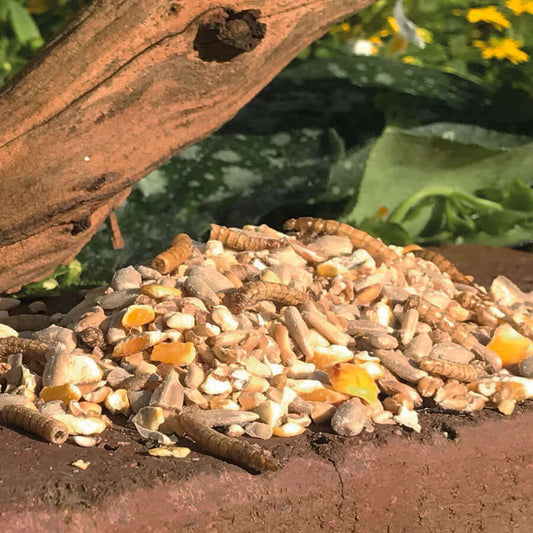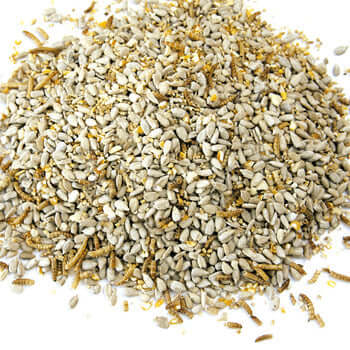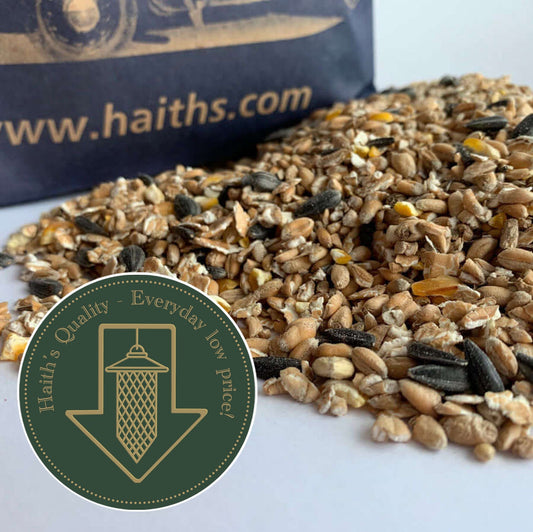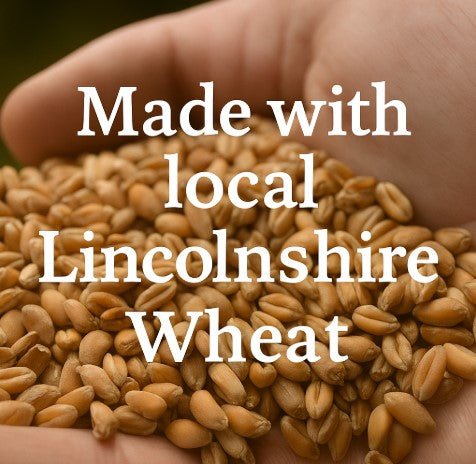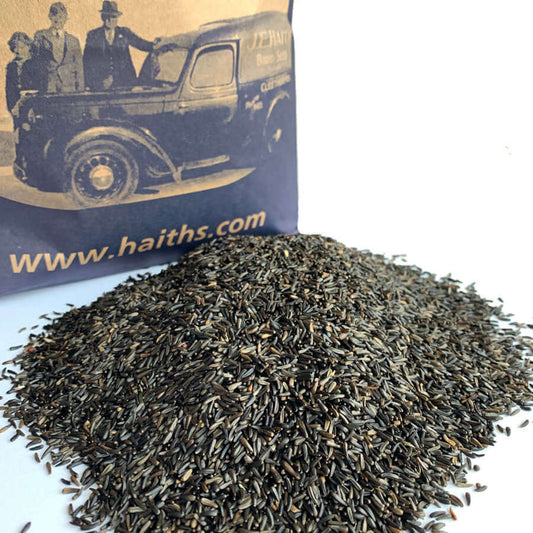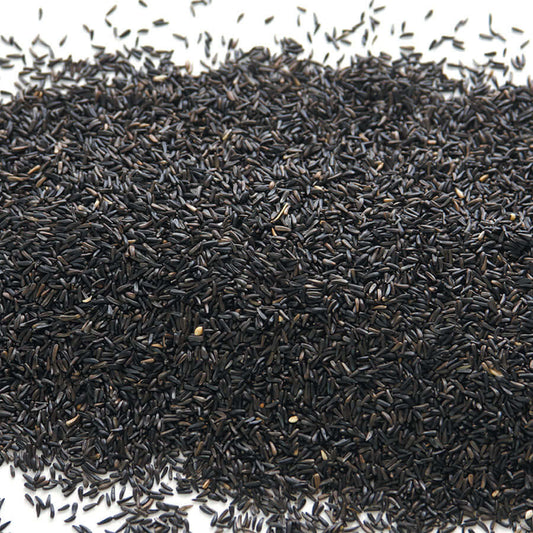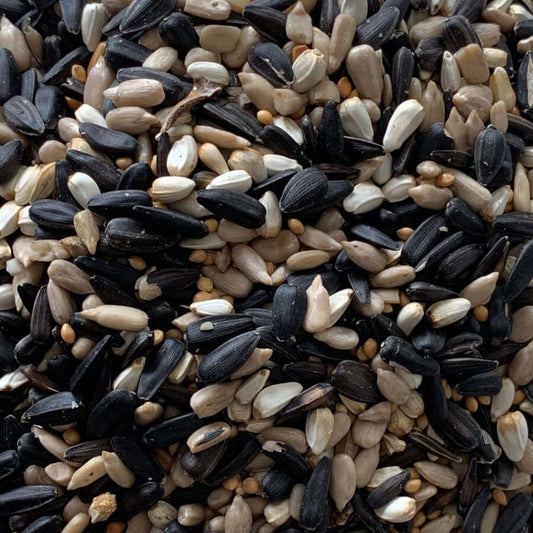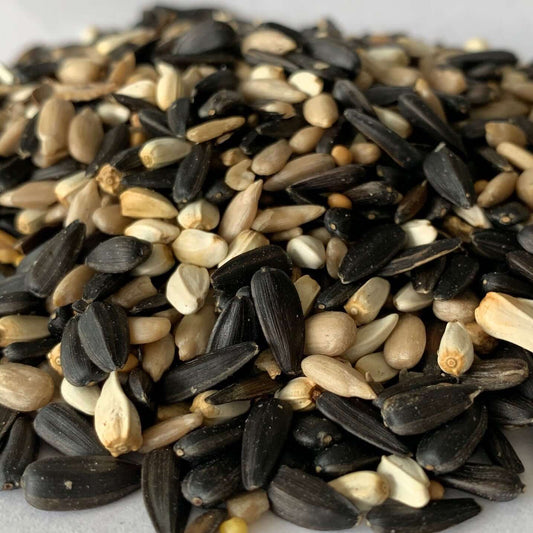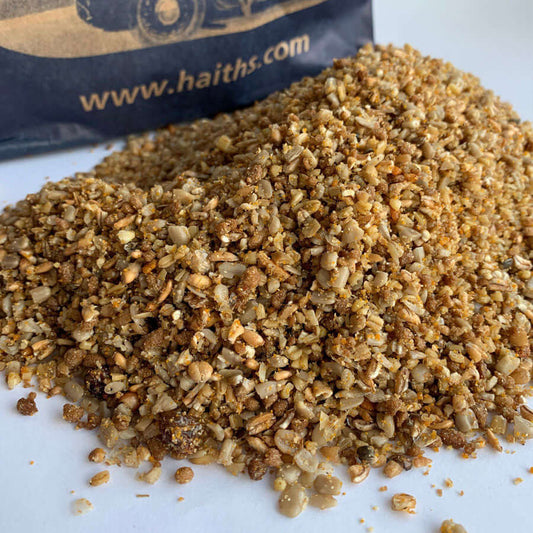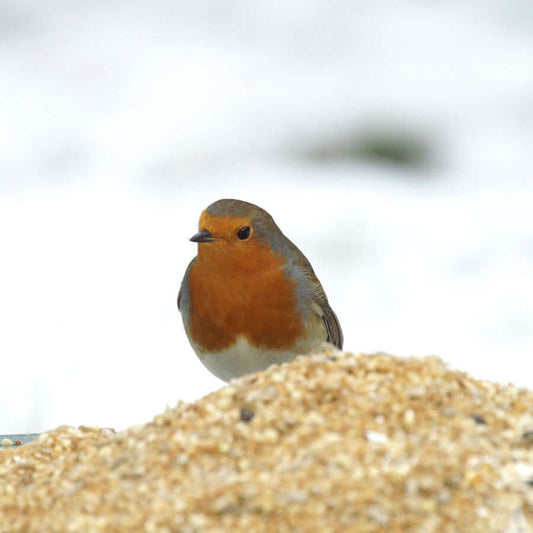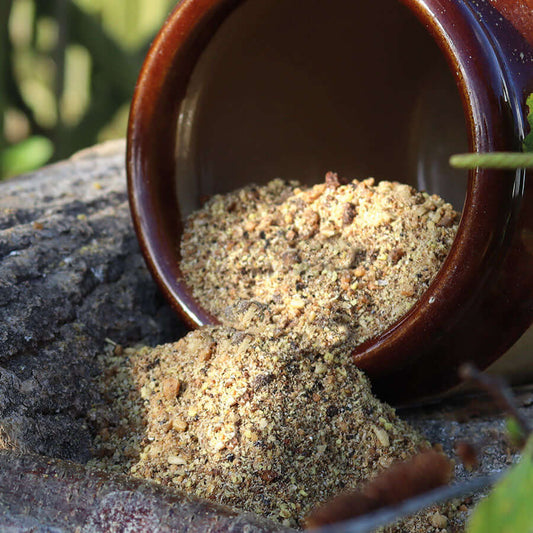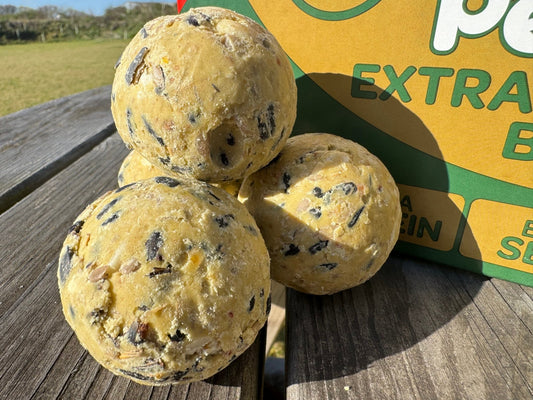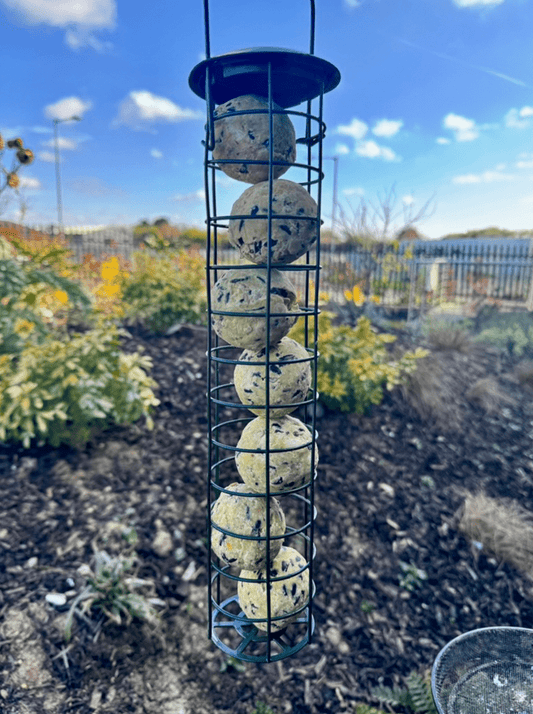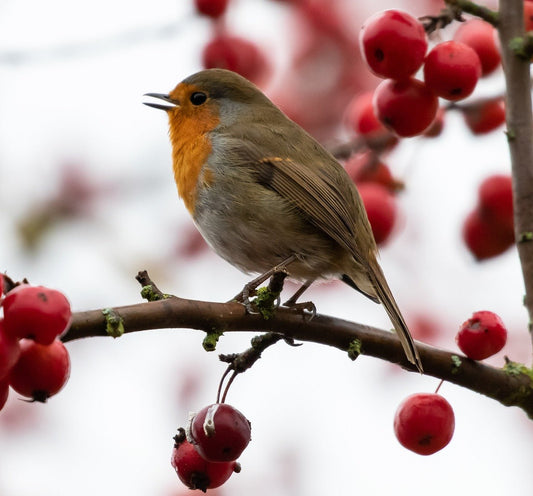Collection: Our Best-Selling Wild Bird Foods – UK Garden Bird Favourites
Discover our best-selling wild bird foods, hand-picked by Haith’s bird food experts to give your garden birds the nutrition they need all year round. Each mix is packed with premium, natural ingredients to provide essential vitamins, minerals, and energy for healthy, thriving wildlife.
Choosing the Best Bird Food for Your Garden
Every garden is different, so the right food depends on your local visitors. Haith’s Sunflower Hearts and Premium Peanuts are top choices for many UK gardens, while our no-mess, no-grow Huskfree Advance mix remains a favourite nationwide.
If you’re unsure where to start, our friendly team is always happy to help you choose the perfect bird food for your feathered guests.

PRODUCTS
-
Sunflower Hearts - Premium Quality
Vendor:HAITH'S to HOME4.99 / 5.0
(205) 205 total reviews
Regular price From £4.99 GBPRegular priceUnit price / per£4.99 GBPSale price From £4.99 GBP -
Peanuts for Birds - Premium Quality Wild Bird Food
Vendor:HAITH'S to HOME4.8 / 5.0
(103) 103 total reviews
Regular price From £4.28 GBPRegular priceUnit price / per£4.75 GBPSale price From £4.28 GBPSale -
Huskfree Advance™ - No Mess Wild Bird Food
Vendor:HAITH'S TO HOME4.87 / 5.0
(151) 151 total reviews
Regular price From £6.99 GBPRegular priceUnit price / per£6.99 GBPSale price From £6.99 GBP -
Fat Robin™ - Soft & Nutritious Bird Blend
Vendor:HAITH'S to HOME4.45 / 5.0
(20) 20 total reviews
Regular price From £4.99 GBPRegular priceUnit price / per£4.99 GBPSale price From £4.99 GBP -
Winterberry™ – High-Energy Winter Bird Seed with Rowan Berries
Vendor:HAITH'S to HOME5.0 / 5.0
(7) 7 total reviews
Regular price From £7.99 GBPRegular priceUnit price / per£7.99 GBPSale price From £7.99 GBP -
Medley™ - High Energy Extra!
Vendor:HAITH'S TO HOME4.94 / 5.0
(17) 17 total reviews
Regular price From £4.99 GBPRegular priceUnit price / per£4.99 GBPSale price From £4.99 GBP -
Premium Wheat-Free Bird Seed Mix - Now with Peanut Granules
Vendor:HAITH'S to HOME4.8 / 5.0
(66) 66 total reviews
Regular price From £5.99 GBPRegular priceUnit price / per£5.99 GBPSale price From £5.99 GBP -
Dried Mealworms for wild birds
Vendor:HAITH'S to HOME5.0 / 5.0
(35) 35 total reviews
Regular price From £6.29 GBPRegular priceUnit price / per£6.29 GBPSale price From £6.29 GBP -
Hi-Energy Berry Flavour Suet Pellets
Vendor:HAITH'S to HOME4.89 / 5.0
(28) 28 total reviews
Regular price From £4.48 GBPRegular priceUnit price / per£4.48 GBPSale price From £4.48 GBP -
Huskfree Advance™ with Suet Pellets - No Mess Mix
Vendor:HAITH'S to HOME4.75 / 5.0
(48) 48 total reviews
Regular price From £7.99 GBPRegular priceUnit price / per£7.99 GBPSale price From £7.99 GBP -
Hi-Energy Insect Suet Pellets
Vendor:HAITH'S to HOME4.97 / 5.0
(30) 30 total reviews
Regular price From £4.48 GBPRegular priceUnit price / per£4.48 GBPSale price From £4.48 GBP -
Great British Suet Fat Balls (no nets)
Vendor:HAITH'S to HOME4.89 / 5.0
(85) 85 total reviews
Regular price From £17.99 GBPRegular priceUnit price / per£19.99 GBPSale price From £17.99 GBPSale -
Super Value Fat Balls (no nets)
Vendor:HAITH'S to HOME4.55 / 5.0
(76) 76 total reviews
Regular price From £9.99 GBPRegular priceUnit price / per£9.99 GBPSale price From £9.99 GBP -
Huskfree Advance™ with Mealworms - No Mess Mix
Vendor:HAITH'S to HOME4.86 / 5.0
(65) 65 total reviews
Regular price From £7.99 GBPRegular priceUnit price / per£7.99 GBPSale price From £7.99 GBP -
Original Wild Bird Food Mix
Vendor:HAITH'S to HOME4.87 / 5.0
(47) 47 total reviews
Regular price From £4.95 GBPRegular priceUnit price / per£4.95 GBPSale price From £4.95 GBP -
Niger Seed for wild birds
Vendor:HAITH'S to HOME4.96 / 5.0
(25) 25 total reviews
Regular price From £4.99 GBPRegular priceUnit price / per£4.99 GBPSale price From £4.99 GBP -
Songster Food for Ground-Feeding Birds
Vendor:HAITH'S to HOME4.95 / 5.0
(19) 19 total reviews
Regular price From £5.95 GBPRegular priceUnit price / per£5.95 GBPSale price From £5.95 GBP -
Feeder Seed – A Reliable Wild Bird Mix for Daily Feeding
Vendor:HAITH'S to HOME4.94 / 5.0
(18) 18 total reviews
Regular price From £18.99 GBPRegular priceUnit price / per£18.99 GBPSale price From £18.99 GBP -
Golden Chorus™ – A Specialist Softfood Mix for Ground-Feeding Birds
Vendor:HAITH'S to HOME4.87 / 5.0
(15) 15 total reviews
Regular price From £7.99 GBPRegular priceUnit price / per£7.99 GBPSale price From £7.99 GBP -
Fledge™ Mix - Optimal Foraging Bird Food
Vendor:HAITH'S to HOME4.5 / 5.0
(12) 12 total reviews
Regular price From £7.99 GBPRegular priceUnit price / per£7.99 GBPSale price From £7.99 GBPSold out -
Softbill Food with Honey
Vendor:HAITH'S to HOME4.43 / 5.0
(14) 14 total reviews
Regular price From £9.99 GBPRegular priceUnit price / per£9.99 GBPSale price From £9.99 GBP -
“Extra Goodness” Fat Balls
Vendor:HAITH'S to HOME4.4 / 5.0
(10) 10 total reviews
Regular price From £15.99 GBPRegular priceUnit price / per£15.99 GBPSale price From £15.99 GBP -
“Natural Balance” Fat Balls
Vendor:HAITH'S to HOME4.5 / 5.0
(4) 4 total reviews
Regular price From £13.99 GBPRegular priceUnit price / per£13.99 GBPSale price From £13.99 GBP -
Berry Advance
Vendor:Haiths to Home4.67 / 5.0
(3) 3 total reviews
Regular price From £7.99 GBPRegular priceUnit price / per£7.99 GBPSale price From £7.99 GBP
Tips for feeding garden birds
Our Top 10 bird foods are popular nationwide, but it's important to cater to your local ground-feeding garden species, such as dunnocks, blackbirds, and chaffinches. Softfoods are perfect for these garden birds. Shop the range here: Softfoods
Offering food, shelter, and fresh water makes life easier for the wildlife in your garden.
Garden birds will thank you for providing a safe place for them to feed in the open and out of reach from predators. Take a look at our range of garden bird feeders for inspiration: Bird feeders
Quality Food for Garden Birds
At Haith's, we pride ourselves on the quality of our bird food. We use only the freshest, natural ingredients, and our food is free from artificial additives and preservatives. When you buy bird food online from Haith's, you can trust that you are providing your feathered friends with safe, nutritious, and natural food.

Order Garden Bird Food Online
Once you've made your selection, you can place your order online and we'll deliver your bird food directly to your door.
We offer fast and reliable delivery to locations across the UK, so you can rest assured that your garden birds will never go hungry. And if you have any questions about our products or need advice on which bird food to choose, our expert team is always on hand to help.
Don't forget to take a look at our blog section to keep up to date with all the latest garden bird hints, tips and news!
Garden Bird FAQs
How can I encourage a wider variety of bird species to visit my garden?
To encourage a wider variety of bird species to visit your garden, try offering a diverse range of foods and habitats. Different bird species have different dietary needs and preferences, so offering a mix of seeds, nuts, suet, and fruits can help attract a wider variety of birds. Also, providing different types of habitats, such as bushes, trees, and birdhouses, can create a more diverse ecosystem in your garden and attract different types of birds.
What types of bird food should I offer to attract specific species of birds to my garden?
To attract specific species of birds, it's important to research their dietary needs and preferences. For example, some birds prefer seed mixtures with a high percentage of sunflower seeds, while others prefer suet or fruits. Researching the birds in your area and their preferences can help you choose the best types of bird food to offer.
Are there any types of food that are harmful to garden birds, or that I should avoid feeding them?
Yes, some types of food can be harmful to garden birds, and it's important to avoid feeding them. For example, bread, milk, and other human foods can be harmful to birds' digestive systems and can cause malnutrition. It's also important to avoid offering old or mouldy food, as this can cause illness or disease among the birds in your garden. Stick to high-quality, natural bird foods from a reputable supplier like Haith’s to ensure the health and safety of the birds in your garden.
Selecting the Right Bird Food:
A Guide to Supporting UK Garden Birds
As garden bird enthusiasts, we have a unique opportunity to support our feathered friends, many of whom are facing significant challenges despite their apparent abundance in our gardens. With bird populations experiencing various levels of decline due to habitat loss, pollution, and climate change, providing the right kind of bird food can play a crucial role in their conservation. Here's how you can make your garden a haven for birds by selecting the most suitable wild bird food.
Understanding Bird Dietary Needs
Different bird species have varying dietary requirements, which can change with the seasons and their life cycle stages. Here's a quick guide to what some of the UK's most common garden birds prefer to eat:
Robins:
Known for their bright red breasts, robins are partial to Golden Chorus and Prosecto Insectivorous mixes, which cater to their insectivorous diet.
Collared Doves:
These birds, with their distinctive fawn coloration and black collar, enjoy Premium Wild Bird Food and Original Wild Bird Food.
Great Tits:
With a glossy black crown and white cheeks, Great Tits favour Premium Peanuts and Black Sunflower seeds.
Goldfinches:
Admired for their bright red faces and yellow wing bars, Goldfinches are particularly fond of niger seeds, which can be provided through specialized Goldfinch & Siskin Mixes.
Chaffinches:
These birds, with their vibrant breeding season plumage, enjoy black sunflower seeds and sunflower hearts.
Woodpigeons:
As the most widespread of Britain's pigeons, they'll happily eat Original Wild Bird Seed and Garden Pheasant Mix.
Starlings:
Omnivorous Starlings will eat a wide variety of foods but show a particular preference for Premium Wild Bird Food and Golden Chorus.
Blue Tits:
These acrobatic visitors prefer sunflower hearts, peanuts for birds and fat balls.
House Sparrows:
Enjoying a broad diet, House Sparrows are particularly drawn to Original Wild Bird Food and Premium Wild Bird Food.
Tips for Feeding Garden Birds
Quality Matters:
Always choose high-quality, clean, and nutritious bird food to ensure the health of your garden visitors.
Seasonal Feeding:
Adjust the type of bird food you offer with the seasons. For instance, high-energy bird foods like suet and fat balls are particularly beneficial during cold months.
Water Availability:
Alongside food, provide a clean and reliable water source for drinking and bathing.
Safe Feeding Practices:
Place feeders in locations that are safe from predators and clean them regularly to prevent the spread of diseases.
Plant for Birds:
Consider planting native shrubs, trees, and flowers that can provide natural food sources (like berries and seeds) and shelter.
Contributing to Conservation
Supporting garden birds goes beyond feeding; it includes creating bird-friendly habitats and engaging in conservation efforts. Participating in citizen science projects like the RSPB Big Garden Birdwatch can provide valuable data to help track the health of bird populations. Additionally, supporting organisations dedicated to wildlife conservation can amplify your impact.
Sharing Your Space
Remember, your garden can be a vital refuge for birds in an increasingly challenging world. By selecting the right bird food and adopting bird-friendly practices, you can make a significant difference in the lives of these delightful creatures. Not only will you be contributing to their conservation, but you'll also enjoy the beauty and diversity of bird life right from your own bird garden.
Through thoughtful action and a little knowledge, we can ensure our gardens remain a sanctuary for the UK's beloved garden birds, supporting their survival and thriving for generations to come.
